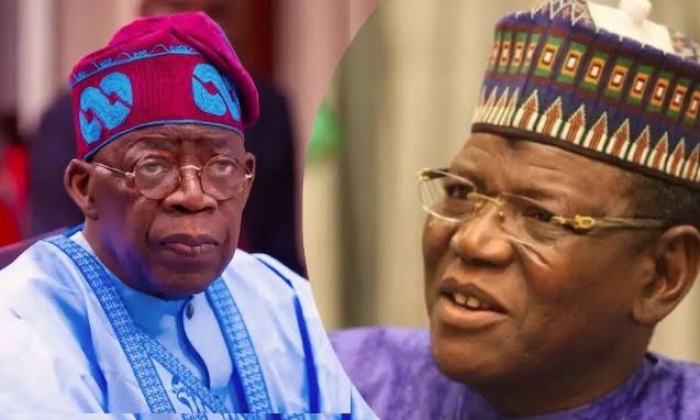A fierce war of words has erupted over Nigeria’s political past, as former Jigawa State Governor Sule Lamido accused President Bola Tinubu of supporting the annulment of the historic June 12, 1993, presidential election. The Presidency swiftly hit back, describing Lamido’s claims as “revisionist falsehoods” aimed at distorting Tinubu’s well-documented pro-democracy record.
Lamido: Tinubu Was With Babangida, Not Abiola
In an interview on Arise Television, Lamido alleged that Tinubu, then a senator on the platform of the Social Democratic Party (SDP), backed the military government of General Ibrahim Babangida in annulling what is widely regarded as Nigeria’s freest and fairest election — presumed to have been won by SDP candidate MKO Abiola.
Lamido, who served as the SDP’s national secretary at the time, dismissed Tinubu’s claims to the June 12 struggle as “dramatised rhetoric.” He said the President only became prominent after General Sani Abacha’s coup later that year.
“I was there. We were all there,” Lamido said. “Tinubu was a major supporter of Babangida. His own mother, Abibatu Mogaji, led market women to Abuja to back Babangida. He ran away when the heat came, while some of us stayed and fought.”
Lamido questioned the credibility of the National Democratic Coalition (NADECO), arguing that many of its members, including Tinubu, were absent during the critical days of the June 12 annulment. He claimed NADECO only emerged during Abacha’s reign, long after the damage had been done.
“I am ready to support any credible political coalition that will remove Tinubu in 2027,” he added.
Presidency Responds: Lamido Rewriting History, Not Tinubu
The Presidency, in a detailed rebuttal signed by Special Adviser Bayo Onanuga, condemned Lamido’s comments as “distorted” and “deeply ironic,” accusing the former SDP scribe of being among those who actually failed Abiola and democracy.
Onanuga stated that Tinubu, far from supporting Babangida, was one of the earliest voices in the National Assembly to publicly condemn the annulment. Quoting Tinubu’s purported Senate speech from August 1993, the Presidency highlighted his unequivocal criticism of the annulment as “another coup d’état.”
“He condemned the injustice when Lamido and his fellow SDP leaders shamefully capitulated,” Onanuga said. “It is documented that Tinubu urged Nigerians to reject the military’s abuse of power and stood firm even before Abacha’s coup.”
The statement dismissed as false the claim that Tinubu’s mother mobilised women to support the annulment. “Had she done that, she would have lost her position as the market leader in Lagos,” it argued.
Exile, Resistance, and the Role of NADECO
The Presidency traced Tinubu’s journey through the pro-democracy struggle, noting his role in forming NADECO after Abacha’s takeover in November 1993. It stated that Tinubu was arrested, detained at Alagbon, and later forced into exile, during which time he continued to fund protests and support the resistance from abroad.
“His home in Victoria Island was bombed. He lived in exile for nearly five years, while Lamido and others were cutting deals with the Abacha junta,” the statement said.
It credited Tinubu with financing various pro-democracy groups, including NALICON, led by Nobel Laureate Wole Soyinka, and sustaining the momentum of NADECO at great personal risk.
Who’s Rewriting History?
The Presidency dismissed Lamido’s attacks as driven by “envy” and “political desperation,” labeling him a member of the “Coalition of the Disgruntled.” It noted that Lamido’s revisionism conveniently overlooks Tinubu’s documented activism and the silence or compromise of many others during the crisis.
“If anyone rewrote history, it was Lamido himself, who, as SDP secretary, helped betray Abiola’s mandate. Tinubu, on the other hand, put his life and resources on the line,” Onanuga said.
Conclusion
At the heart of the controversy lies not just a dispute over historical facts, but a deeper political battle over legitimacy, legacy, and the moral high ground in Nigeria’s long and painful march to Western democracy. While Lamido casts Tinubu as a latecomer who fled the scene, the Presidency insists the current president was, in fact, a foundational pillar of resistance.
With both sides trading claims and counterclaims, Nigerians are left to sift through the fog of memory and political self-interest to judge for themselves who stood for democracy — and who stood aside.
